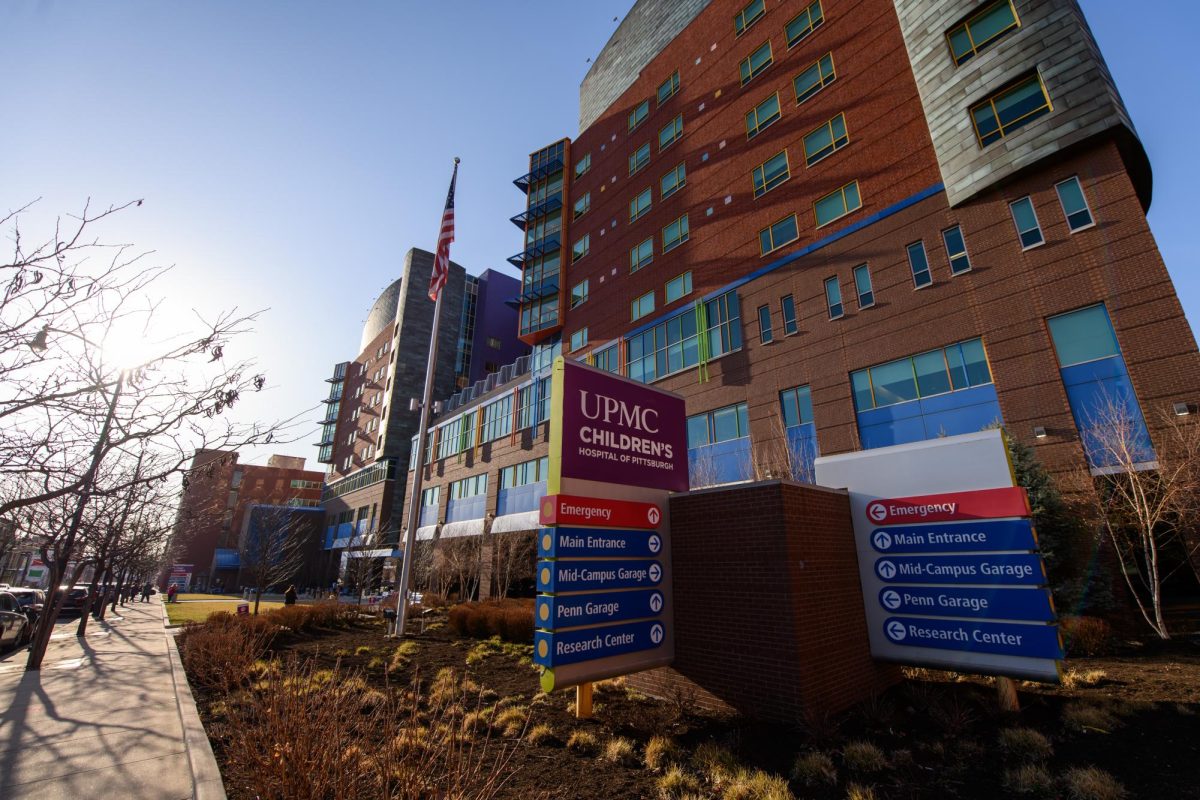Since recent reports came to light of patients unable to receive pediatric gender-affirming care from UPMC Children’s Hospital of Pittsburgh, Pitt students are beginning to feel “numb” to national threats toward gender-affirming care.
After President Trump signed an executive order blocking federal funding for gender affirming care for children, which is still being held up by a Maryland court, UPMC Children’s Hospital of Pittsburgh has reportedly halted gender affirming care to families with transgender children.
In light of this care denial and the recent UCC controversy surrounding the removal of the “T” in an event name change, some students are fearful that gender affirming programs at the university could be put into jeopardy.
Aza, a junior year DNID major and Rainbow Alliance office administrator, doesn’t know anyone directly affected by the denial of care thus far but is fearful that it could put at risk the gender affirming care happening within the university.
“At Student Health, you are able to get informed consent hormone replacement therapy. And seeing as Children’s Hospital is doing this, reducing that, then there, it feels like there is a genuine chance that that could be revoked as well,” Aza said.
Rainbow Alliance president Renna Merkert has also become concerned about LGBTQIA+ treatment and support on campus in light of the aforementioned controversies.
“It’s upsetting knowing that all of this progress, especially that’s been made in furthering LGBTQ rights on campus and just in the U.S., has kind of taken a step backwards,” Merkert, a junior mechanical engineering major, said.
The University of Pittsburgh is yet to release an official comment on UPMC CHP’s actions, according to Renna. The University is not affiliated with UPMC.
The University has also not released a statement regarding the website name change for the UCC or support for queer students, according to Renna.
“There’s not been any public acknowledgement of the UCC website change … they have not been very transparent about what happened,” Merkert said.
According to Merkert, there was also little official communication from the University concerning an “LGBTea+ Time” event with Dean of Students Marlin Nabors. This event, which takes place weekly but hosted Nabors on March 26, is an opportunity for LGBTQIA+ students to voice their thoughts and concerns to the dean about the queer climate at Pitt. Rainbow Alliance was “limited” in its ability to advertise the event and understand next steps due to a lack of clarity about the event’s purpose.
Merkert cites midterms season as a possible reason for the care denial going mostly unnoticed amongst the student population. She believes the denial of care is not just worrisome for Pitt students but for families throughout Pittsburgh.
“I definitely think that there is a concern about its greater meaning, especially being tied to the university,” Merkert said. “[But] it almost went a little bit unnoticed.”
Heidi Herschbach, a first-year psychology major, found the denial at CHP to be upsetting, especially with the effect it may have on her loved ones.
“It’s definitely very disappointing to hear,” Herschbach said. ”I have people in my life who rely on gender affirming care, and — especially knowing that it’s from the Children’s Hospital — that’s really disappointing here.”
oSTEM social media chair and senior psychology major Mak Blough found the upheaval to be upsetting, but not shocking. They believe at least part of the lack of official University communication may be due simply to administrators not knowing and not having concrete answers or next steps.
“I’m not trying to defend Pitt, but frankly, I do think a lot of them also just don’t f—— know,” Blough said.
Emma Moran, president of oSTEM and senior physics and astronomy major, agreed that a lot of decisions — such as anti-transgender healthcare laws being held up in court — are still up in the air. However, they believe the University still has a duty to its students to explore the problem and communicate.
“I do think it’s their job to find out. Yes, that’s the problem,” Moran said. “It changes every day. But I think they should be saying something.”
Moran wasn’t surprised about the lack of communication on Pitt’s behalf in light of recent LGBTQIA+ controversies, considering a past lack of support when anti-trans speakers came to campus in the 2022-2023 school year.
“Overall, Pitt has not done anything substantial about it. Even now, I don’t think we have been really told what’s going to happen in the University,” Moran said.
While the denial of care isn’t a shock to Moran, she still feels strongly about the severity of the situation and the consequences of a lack of gender-affirming care. oSTEM has been working to support students during this time by hosting networking and bonding opportunities alongside creating a resource list for LGBTQIA+ and BIPOC community members.
“It should not be happening. I’m terrified for these kids,” Moran said. “It’s that whole ‘Maybe we’re just numb to it,’ which f—— sucks to say to begin with, that maybe we’re just numb to it all.”


